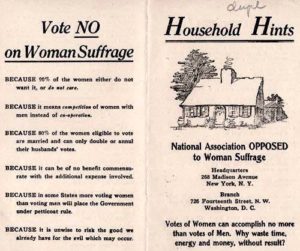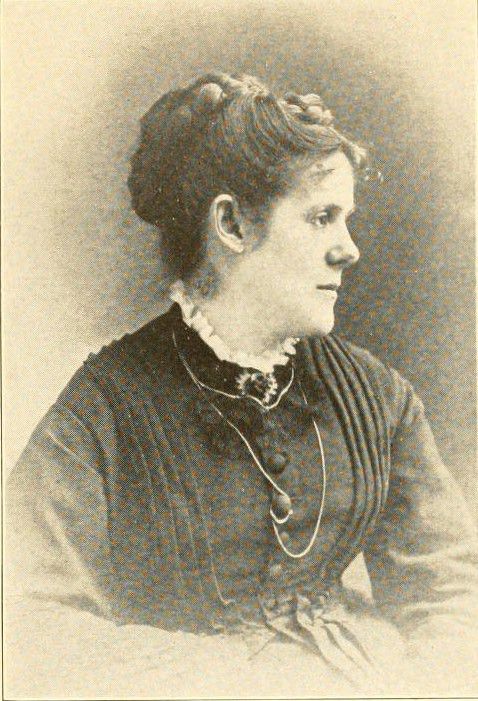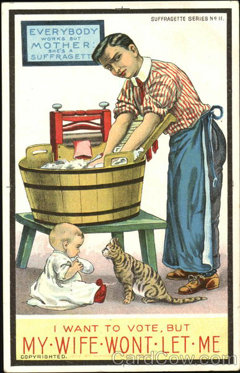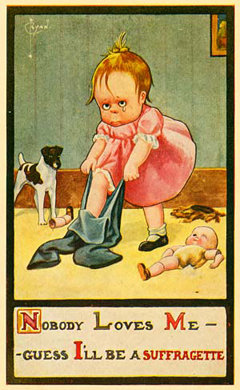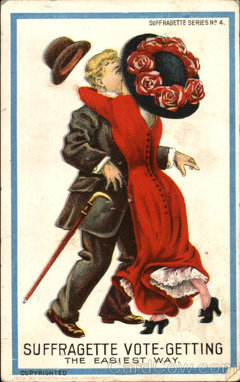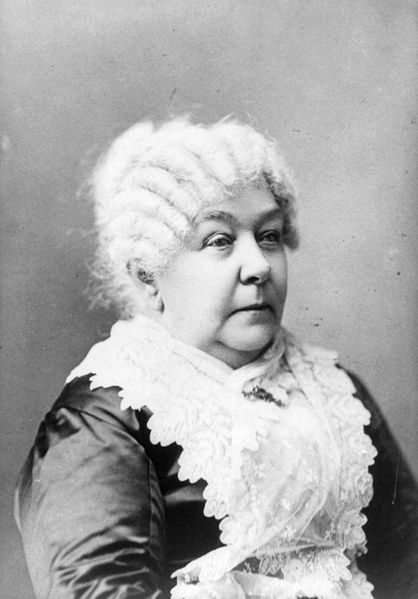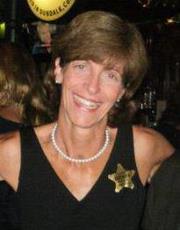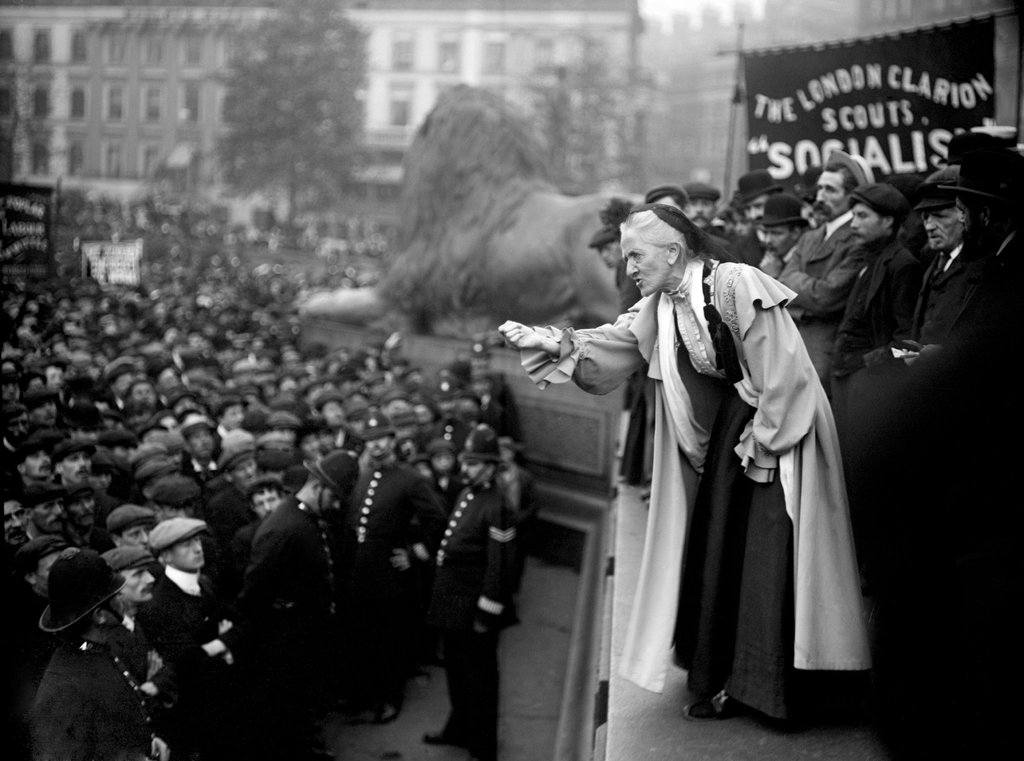
Suffragist Charlotte Despard in London in 1910
BRITISH feminists celebrated the 100th anniversary of women’s suffrage this week. Well, they sort of celebrated — if saying how oppressed women remain and perpetuating outrageous myths about the female vote constitute celebration. If stumping for socialism, promoting myths about “democracy” and disdaining men is celebration, then, yes, it was a big party.
What these jubilant heiresses of the often ugly suffrage movement never mention is that for most of British history, the vast majority of men didn’t have the national vote either and that women had long had the vote on the local level.
Not until 1910 — eight years before women — did a majority (not all, by any means) of British men have the right to vote. Many, however, were effectively disenfranchised by cumbersome rules. Feminists also do not mention that many women in Britain (and America) were uneasy about giving women the vote, given that men were the ones responsible for paying taxes and dying in wars. The suffrage movement was taken over by bullying militants, predecessors of the socialist resentment freaks of today.
Beginning around 1910, their tactics became quite violent, including arson attacks and the bombing of the house belonging to the chancellor of the Exchequer, David Lloyd George.
One suffragist, Mary Richardson, slashed a painting at the National Gallery in London with a meat cleaver. A Sikh princess, Sophia Duleep Singh, threw herself in front of the prime minister’s car.
Those actions have stoked a debate lately over whether the women should be considered “terrorists.” The Labour leader Jeremy Corbyn addressed that issue on Tuesday, pledging to pardon them posthumously if he ever claims the prime ministership. [Source]
Another myth about the movement is that the women’s war effort justified the female vote. Steve Moxon writes in his book The Woman Racket: the New Science Explaining How the Sexes Relate at Work, at Play and in Society:
The supposed contribution by women in general to World War One is mostly a myth. War work for women was voluntary, and even by the last year of the war only one in ten adult women had signed up. Less than half of these worked in engineering/munitions, where most chose (as they could do) to do nothing much different to the factory work they had done or might have done before wartime. Production was possible only because of the then new automised working techniques that allowed complete de-skilling, which itself was possible only with the continuous production that war demanded. The sheer volume of production and the dispensability of the lives of soldiers hid the appallingly low quality of output (shells insufficiently filled fell short on our own troops, and shells with faulty fuses failed to explode or blew up on firing). There was no question of keeping on these women for the entirely different skilled and semi-skilled work that resumed after the war. The much smaller numbers who replaced farm workers accounted for the precipitous fall in agricultural production. All-in-all, women’s war work was hardly an advertisement for women as workers
He adds:
In any case, there was a more profound basis for exclusive male enfranchisement than economics. Buried by the passage of time, but obvious to everyone at the time, was the grounding of worldly political power in the separate world of the male. The national vote was and was seen to be all about ‘imperial’ issues—law and order and the like—and therefore clearly the province of men (only men being required to take up arms and only men having an appetite to do so). Helen Kendrick Johnson, writing in 1913 (A Survey of the Woman Suffrage Movement in the United States and a Discussion of the Claims and Arguments of Its Foremost Advocates) explains:
Democratic government is at an end when those who issue decrees are not identical with those who can enforce those decrees.…Upon this depended stability, and without stability there is nothing. Stability required a majority of men.…Woman’s only relation to this defence is that of beneficiary, and therefore her relation to the laws with which that defence is associated must be one of advice and not of control.
This argument could be broadened to an economic one in moving from the issue of providing physical security to taxation. Women voting nationally was considered undemocratic, because very few women paid tax.
Underpinning these arguments was the near universally-held attitude that the world was and should be divided into two spheres of influence: that of children, morality, and the future of the human race (where woman held sway), and that of politics, which was not only much less important, but also much less high-minded (where men held sway).
There are good arguments indeed for giving women the vote, but there is no defense for the one-sided discussion. And at the end of the day, a vote ain’t much. That’s the brutal truth. The women’s suffrage movement is just one more development in the tired and sorry process of convincing the public that modern democracy is for the people when it is most definitely against the people. After all, the Powers That Be in our intensely stratified world, where the one percent control far more of world’s resources than ever before, don’t make a big deal of this anniversary because it disenfranchised them. Women have less power, if power be measured by the ability to act in one’s own best interests, today than they did before the days of Emmeline Pankhurst when they at least had an exclusive and healthy realm of independence and autonomy little controlled by government and politics. Elections are a brilliant means by which the people are enticed to submit willingly and enthusiastically. In that light, the enfranchisement, and subsequent politicization, of women have been regressive historical events. There was something to be said for the non-partisan voice.
Below is a bitter product of the resentment many of the suffragists fueled. Why does such a crank, someone who clearly despises half of the human population and implicitly disdains even her own father, who gave her life, have a voice in one of the most influential publicity organs in the world? Ha! The division she represents is all for the good.






